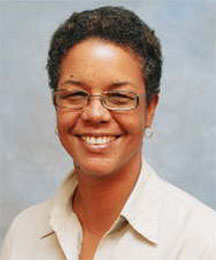– encourages sportsmen and women to educate themselves more on anti-doping
Caribbean Director of the Regional Anti-Doping Organisation (RADO), Dr. Karen Pilgrim is reminding athletes to continue to adhere to the rules of the body despite the Novel Coronavirus (COVID-19) pandemic.
“The basic rules of the World Anti-Doping Agency (WADA) and the code and all of the other rules relating to anti-doping remain in place regardless of pandemics or natural disasters or any other tragedy that may fall upon us. We are still signatories to the code we are still bound by the rules,” Dr Pilgrim expressed.
The director indicated that while testing may be “clumsy”, it will not be impossible to conduct.
“In terms of testing, it is possible of course that testing will be affected by the current coronavirus pandemic throughout the world. However, it is also still possible to test. For those athletes who have been tested they would know and understand that it is not necessary for the doping control officer to be within six feet of you,” she stated.
Pilgrim, however, acknowledged that it could be awkward with the stipulations of social distancing since “there are times where they would have to pass that clipboard across that six-foot distance in order to confirm certain information, [and] for persons like me, whose voices are not so loud, maybe will have to speak a bit more clearly to be heard from behind the mask but it certainly is possible to test.”
The director reiterated, “the couriers we are using in Guyana are still operating so there is no problem in that regard to getting the test to the laboratories we use so the possibility remains that athletes could be tested.”
Dr Pilgrim explained that some athletes who have already been identified by their national federations to submit their whereabouts forms are still bound to that agreement or can face a potential ban.
“What happens around us has no bearing to submit whereabouts and athletes need to be reminded that there is a penalty for non-submission of your whereabouts so if you have been identified by your national federation we are already at the end of April so if you have not submitted for the year you have already missed three months within the year and you are heading to the possibility of being banned from your sport equally as if you have been tested positive meaning you could be banned for up to four years for not submitting those whereabouts,” she pointed out.
In light of suggestions by various organisations to use different forms of medications to help fend off the coronavirus, Pilgrim maintained that athletes are responsible for what they eat and drink.
“We have all seen the various health suggestions regarding coronavirus, taking vitamin C, increasing your Zinc, I’ve seen all kinds of things. You should be guided by what your medical personnel tells you, [or] whatever your common sense tells you but none of those things I’ve heard contravene the WADA code. Again Supplements are always frightening prospects because you could never be sure what they contain but basic Vitamins, basic good nutrition, of course, is always recommended,” the director noted.
She highlighted the fact that a large representation of the athletes attend school but, owing to the pandemic was at home and recommended that this time be used to educate themselves more on anti-doping.
“As many athletes are of school age and are likely to be home at this time, what I would want to recommend is that they take this time to educate themselves a bit more on anti-doping and I would direct them to the WADA anti-doping site known as ‘adel.wada-ama.org’, the site has various resources on educating yourself on all different aspects of anti-doping and once you register as a Guyanese athlete, the Olympic association will be able to track that and would be able to know that you are doing what we are advising you in terms of making yourselves a little more knowledgeable on anti-doping in general,” she posited.






